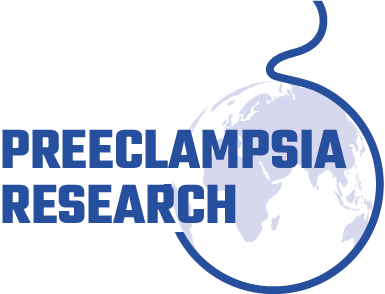Publications
- PROVE
- GO PROVE and UPMOST
- PI TRIALS
- ICE
- IMPACT
- SWEDISH REGISTER STUDIES
- BLOOD BRAIN BARRIER STUDIES
- INCENTIVE
- Study protocol: establishment of a multicentre pre-eclampsia database and biobank in Sweden: GO PROVE and UP MOST, a prospective cohort study
- The experience of being a partner to a childbearing woman whose pregnancy is complicated by pre-eclampsia: A Swedish qualitative study
- Novel Associations Between Mid‑Pregnancy Cardiovascular Biomarkers and Preeclampsia: An Explorative Nested Case‑Control Study
- Platelet aggregation and thromboelastometry monitoring in women with preeclampsia: a prospective observational study
- Combining metformin and sulfasalazine additively reduces the secretion of antiangiogenic factors from the placenta: Implications for the treatment of preeclampsia
- Tong Preeclampsia treatment review AJOG
-
Esomeprazole to treat women with preterm preeclampsia: a randomized placebo controlled trial
- A double blind, randomised, placebocontrolled trial to evaluate the efficacy of metformin to treat preterm preeclampsia (PI2 Trial): study protocol
- Planned early delivery versus expectantmanagement for hypertensive disorders from 34 weeks gestation to term (Review)
- Systematic Review of PPI and Rx of PET and Gestational hypertension
- Metformin pharmacokinetics
- Use of metformin to prolong gestation in preterm pre-eclampsia: randomised, double blind, placebo controlled trial
- Does metformin prolong pregnancy in preterm pre-eclampsia? A study protocol for a South African, hospital-based double-blind, randomised, placebo-controlled trial
- Study for Improving Maternal Pregnancy And Child ouTcomes (IMPACT): a study protocol for a Swedish prospective multicentre cohort study
- Comparing the results from a Swedish pregnancy cohort using data from three automated placental growth factor immunoassay platforms intended for first-trimester preeclampsia prediction
- Preeclampsia screening and prevention – A Nordic perspective
- Aspirin use during pregnancy and the risk of bleeding complications- A Swedish population-based cohort study
- Multi-Fetal Pregnancy, Preeclampsia, and Long-Term Cardiovascular Disease
- Proton Pump Inhibitors and Preeclampsia Risk Among 157 720 Women
- Duration of labor among women with hypertensive disorders of pregnancy; A Swedish register cohort study
- Low-Dose Aspirin for Preventing Birth of a Small-For-Gestational Age Neonate in a Subsequent Pregnancy
- Low-dose aspirin use in pregnancy and the risk of preterm birth: a Swedish register-based cohort study
- Duration of labor among women with thromboembolic events: A Swedish register study
- Risk of fistula formation and long‐term health effects after a benign hysterectomy complicated by organ injury: A population‐based register study
- Preterm birth and the mechanism of action of low-dose aspirin: a response
- Comparing aspirin 75 to 81 mg vs 150 to 162 mg for prevention of preterm preeclampsia: systematic review and meta-analysis: questionable quality and small study effects?
- Metformin use and preeclampsia risk in women with diabetes: a two-country cohort analysis
- Gestational Hypertension, Preeclampsia, and Eclampsia and Future Neurological Disorders
- Prophylactic Aspirin Dose and Preeclampsia
- Preeclampsia and increased permeability over the blood brain barrier – a role of vascular endothelial growth receptor 2
- Investigating Maternal Brain Alterations in Preeclampsia: the Need for a Multidisciplinary Effort
- Disruption of the Blood-Brain Barrier by Extracellular Vesicles From Preeclampsia Plasma and Hypoxic Placentae: Attenuation by Magnesium Sulfate
- Cerebral Biomarkers and Blood-Brain Barrier Integrity in Preeclampsia
- Dysregulation of vascular endothelial growth factor receptor 2 phosphorylation is associated with disruption of the blood-brain barrier and brain endothelial cell apoptosis induced by plasma from women with preeclampsia
- Cerebral perfusion pressure and autoregulation in eclampsia—a case control study
- Evidence of Neuroinflammation and Blood–Brain Barrier Disruption in Women with Preeclampsia and Eclampsia
- Cerebral biomarkers in neurologic complications of preeclampsia
- Preeclampsia and increased permeability over the blood brain barrier – a role of vascular endothelial growth receptor 2
